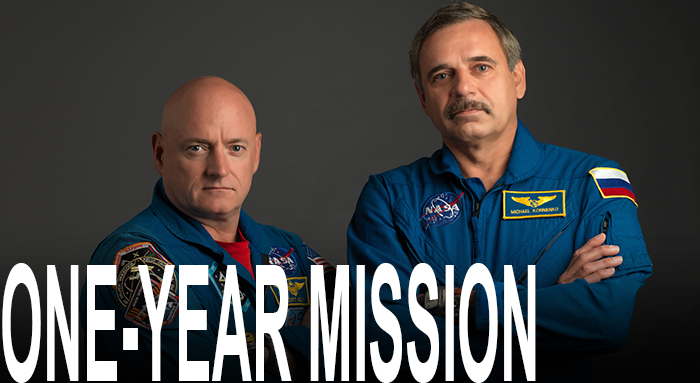TORONTO — After months of preparation and training, NASA astronaut Scott Kelly and Russian cosmonaut Mikhail Kornienko are ready to spend a year in space.

The pair — along with Russian Gennady Padalka — launched to the International Space Station Friday afternoon at 3:42 p.m. EDT from the Baikonur Cosmodrome in Kazakhstan.
READ MORE: How the one-year mission in space will help us get to Mars
This will be a record stay for an ISS crew: to date NASA astronaut Michael Lopez-Alegria and Russian Mikhail Tyurin lived on the orbiting laboratory the longest, at 215 days, from September 2006 to April 2007.

The record for longest stay ever belongs to Valeri Polyakov, who spent 437 days on the Russian space station Mir from 1994 to 1995
But this stay is special: both American and Russian space agencies are collecting data on the effects of long-duration spaceflight on the human body. And Kelly’s twin brother Mark — a former astronaut — will serve as a ground-based control group of sorts. Doctors will be collecting samples from him and comparing it to his brother’s.
WATCH: NASA conducts unique experiment involving pair of astronaut twins
The typical stay on board the space station is roughly six months. Even in that time, astronauts suffer from bone density loss, muscle atrophy and vision changes. So if humans are to reach out into space — for example, head to Mars as NASA plans to do within the next 20 years — we need to know what to expect with long-duration spaceflight.
And though this is called the One-Year Mission, the astronauts will be in space just under a year — 342 days.
You can watch the launch live on Global News beginning at 3 p.m.

Comments